‘I felt like I was dying’: Doctor’s wild response to woman’s pain
Collapsed on the floor in excruciating pain, she was convinced she was going to die. What her doctor did next made her blood run cold.
For most of her life, Jade Walker was convinced that the excruciating pain she endured was simply a “normal part of being a woman”.
It was a phrase recounted by countless different doctors and specialists she saw as she sought answers about her health.
The 33-year-old got her first period when she was just 11, and soon after began suffering from debilitating period pain that affected every aspect of her life.
Over time, the agony worsened for Jade, from Geelong, Victoria, leading her to dread each menstrual cycle.
For people who menstruate, having a period can mean dealing with uncomfortable bloating, cramping and mood swings. But for Jade, that time of the month meant missing school, social activities and spending days in bed sobbing in pain.
“I’d be screaming and crying on my hands and knees from the pain,” the mum told news.com.au.
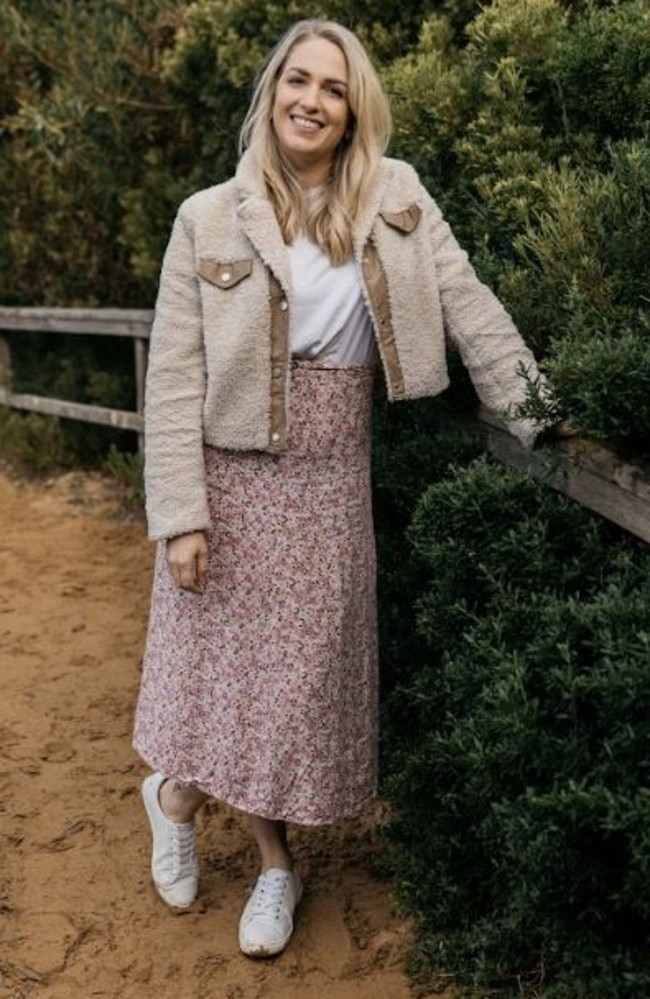
“I remember I would be trying to make my way down the hallway at home, just begging for someone to make it stop. It was horrible.
“It was my norm. I went to different doctors many times, and they’d offer things like Ponstan (an anti-inflammatory painkiller used to treat period pain) or just over the counter drugs.
“But nothing helped. It wouldn’t even touch the sides.
“Then I was put on the contraceptive pill, which is common as a first-line solution for period pain. But I hated the way it made me feel, so I came off it.”
Fight for answers
Miss Walker lived like this throughout her teen years, until she turned 20 and decided to take matters into her own hands.
With her mum, a former nurse, by her side, she plucked up the courage to demand answers from her doctor — but again, was let down by their response.
“My mum actually suspected it could be endometriosis – a disease where tissue similar to the lining of the uterus grows outside the uterus – but nobody had diagnosed me,” she explained.
“I was living at home at the time, and so Mum could see the pain I was in. She really encouraged me to keep pushing until I could get an answer.
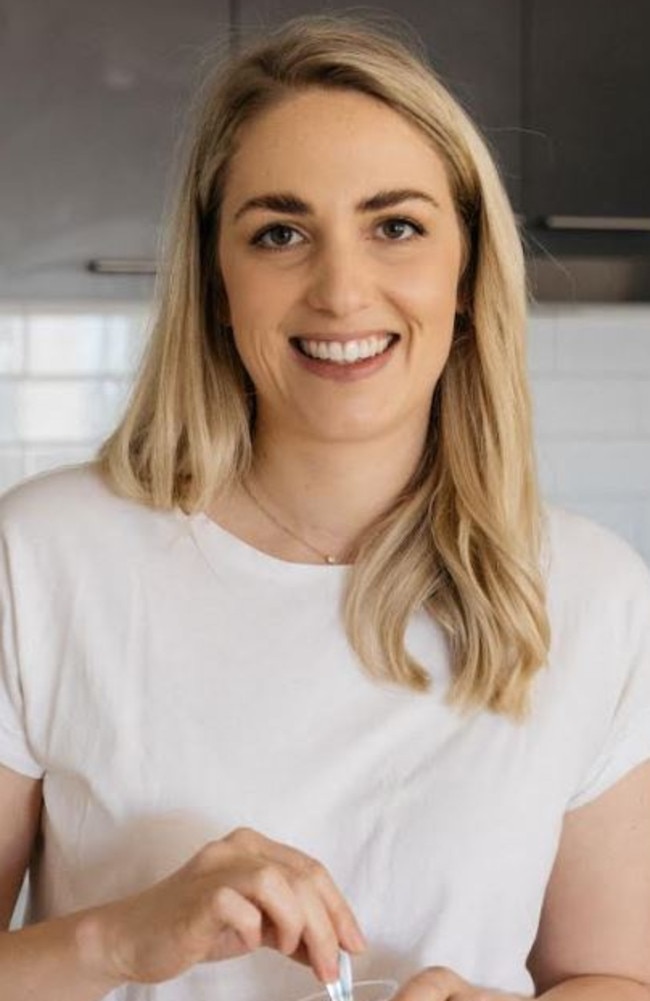
“But again, like all the times before, they were dismissive. The doctor said, ‘well, you are a woman and this is normal’.
“But I knew it wasn’t. This time I put my foot down and said I wanted a referral to a gynaecologist.
“It was like drawing blood out of a stone. I saw the gyno, and she actually laughed at me.
“She laughed and said there was no way it could be endometriosis.
“She was almost astounded that I had even suggested it.”
At 21, Jade had a laparoscopy, a keyhole surgical procedure used to diagnose and treat endometriosis by checking for abnormal deposits of endometrial tissue, scarring or cysts in the reproductive organs and pelvis.
When she came round from the general anaesthetic, she was told she did not have endometriosis.
“They said, well congrats – you don’t have endo,” Miss Walker recalls.
“And I was like, well that’s great. But what’s wrong with me then? Why do I have so much pain?
“Again, it was the same response. It was normal and I just needed to take pain killers each month and get on with it.”
Miss Walker says she spent years “gaslighting” herself that everything was fine, when deep down she knew that something was very wrong.
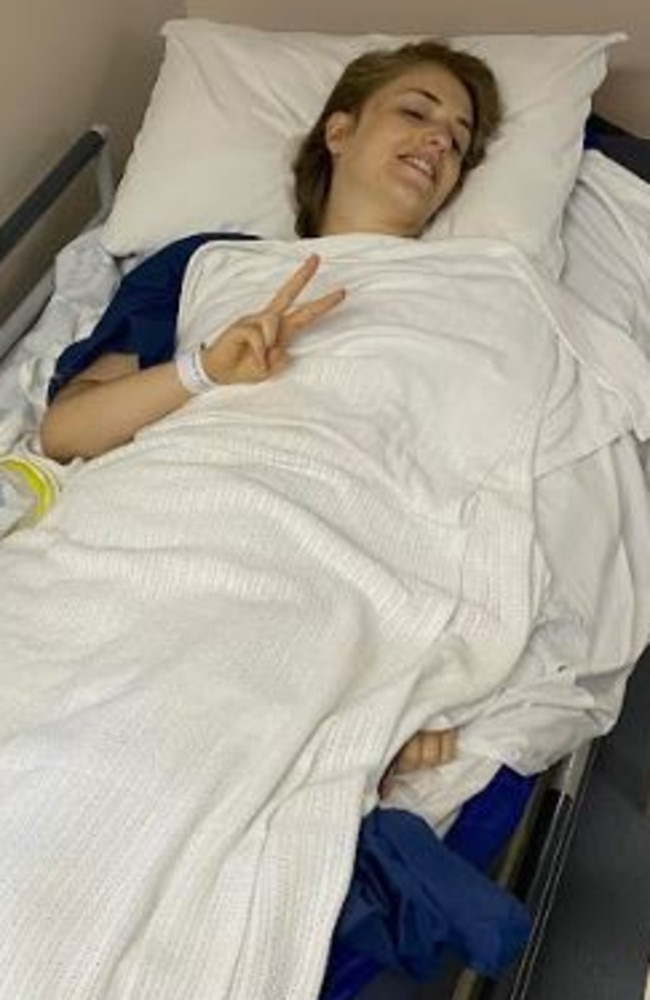
‘So many emotions’
She went on to complete a Bachelor of Health Science and is now working as a naturopath.
Jade is also the director of health and wellness at Hey Sister!, a company that specialises in creating products that offer period pain relief.
It was through this work and seeing her symptoms mirrored in her patients that things started to become clearer.
Finally, at 28 years old, Jade was diagnosed with endometriosis after 17 years of living the same painful nightmare.
“I had to go to the emergency department a couple of times, the pain was so excruciating that I thought I was dying,” she says.
“But I was always told it was nothing. It was not until I started my career in health and I began seeing patients with this condition that I realised I needed to push more.
“I found an advanced trained incision surgeon who specialised in endo. He did a transvaginal ultrasound and picked it up straight away.
“I couldn’t believe that after 17 years of debilitating pain, someone has finally given me the answers I needed.
“It was such a validating experience to know that it hadn’t been all in my head the entire time.
“I actually cried when I was diagnosed. There were just so many emotions.”
Unfortunately, the prolonged wait for a diagnosis and dismissal by medical professionals isn’t unique to Miss Walker.
In a survey by news.com.au involving over 1700 Australian women with endometriosis, only 32.23 per cent received a diagnosis within six years, while 45.4 per cent waited over six years and 22.4 per cent are still awaiting a formal diagnosis.
Additionally, 54.4 per cent reported mostly negative experiences with doctors, while 17.3 per cent felt they were never taken seriously when seeking medical help for endometriosis.
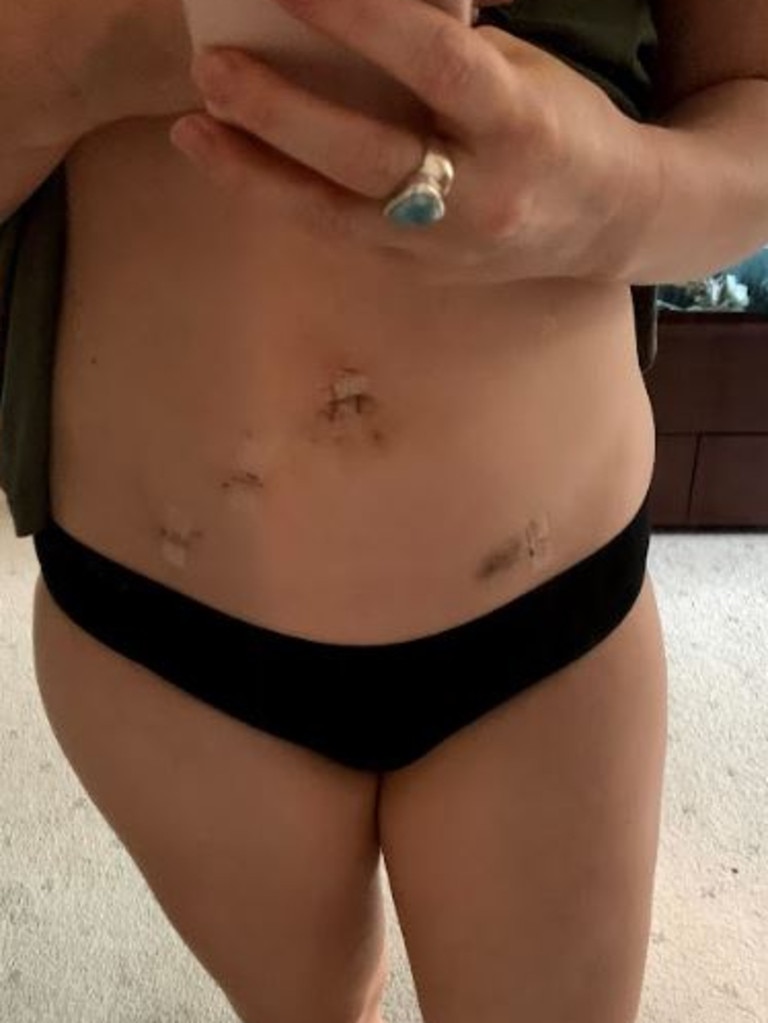
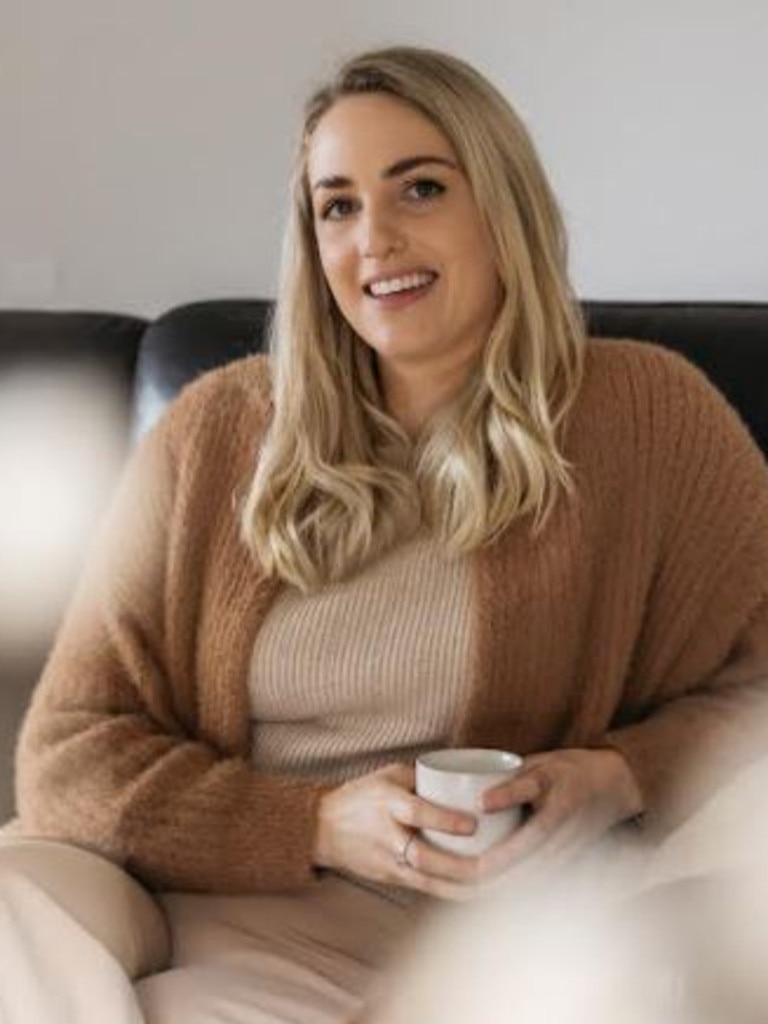
Miss Walker was booked in for surgery within two months and she had much of the endometriosis removed, however she still struggles with pain.
She now lives with her condition and has incorporated different health practices to help her on this journey, including naturopathic therapies such as herbal medicines and nutraceuticals.
Her goal now is to help raise awareness about the condition through sharing her story.
“This condition can affect people in so many different ways,” Jade explained.
“It can make sex painful, cause digestive issues and make you super tired all the time. Then you have to consider the mental health impact that can come along with it.
“It really is the luck of the draw whether you get a good GP or not. That’s why I wish all doctors were more educated and equipped to deal with endometriosis.
“They really need to have a list of the best specialists and surgeons. But most importantly, they need to listen to their patients.
More Coverage
“It can be so life changing to have a good doctor. We still have such a long way to go with this disease.”
Medicare is failing women and it’s About Bloody Time things changed. Around one million suffer from endometriosis. There is no cure. Help is hard to come by and in rural or regional areas, it’s virtually impossible. We are campaigning for longer, Medicare-funded consultations for endometriosis diagnosis and treatment. Read more about the campaign and sign the petition here
About Bloody Time is an editorial campaign by news.com.au that been developed in collaboration with scientists recommended by the Australian Science Media Centre, and with the support of a grant from the Walkley Foundation’s META Public Interest Journalism fund.







